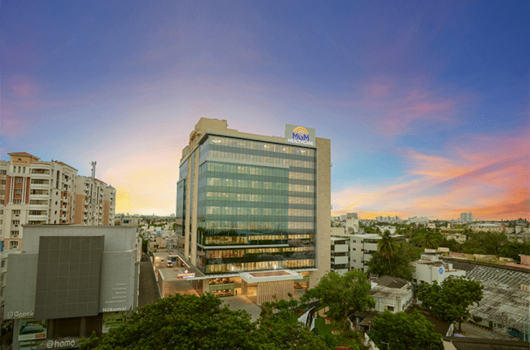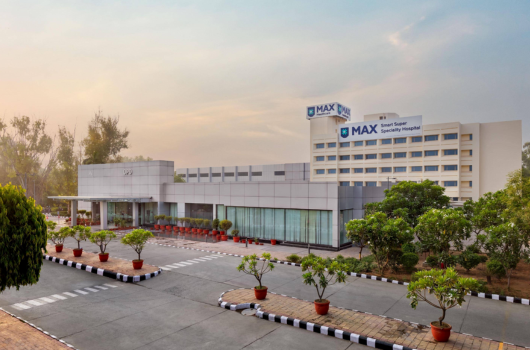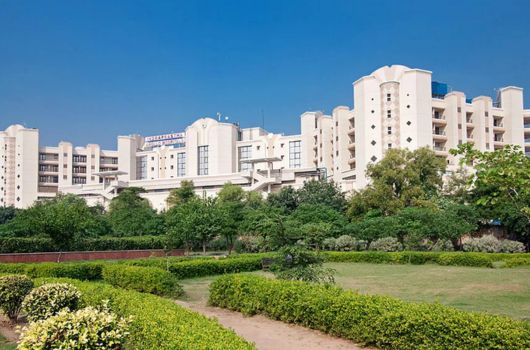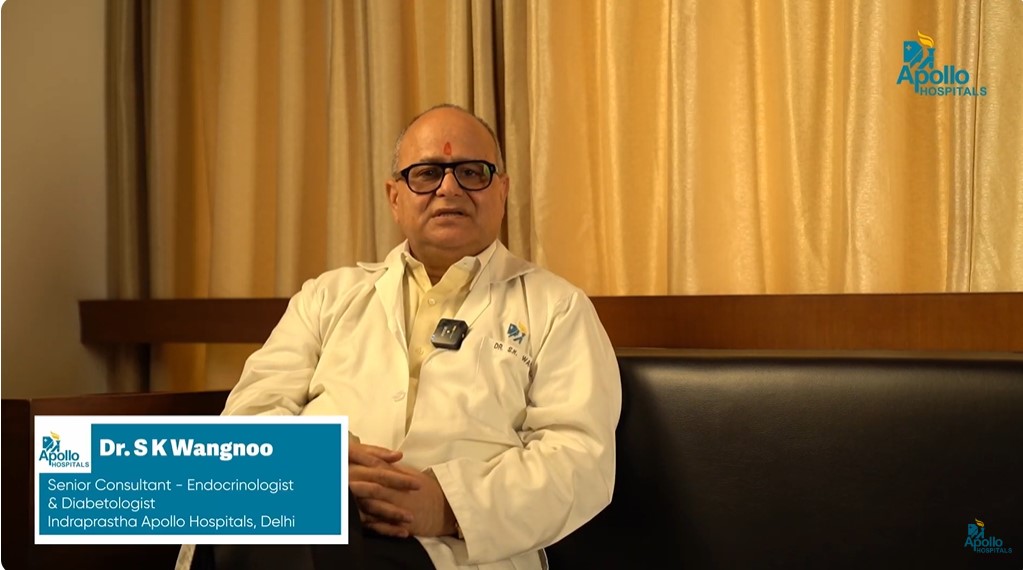Diabetes is a long-term health condition where the body cannot use or make insulin properly. Insulin is a hormone that helps sugar from the food we eat move into the cells to give us energy. When insulin does not work well or is missing, sugar stays in the blood. This causes high blood sugar, which can lead to serious problems if not treated.
There are two main types:
Another type of diabetes is gestational diabetes, which occurs during pregnancy. In general, diabetes is referred to as “sugar disease” or “blood sugar problem.”
A common myth is that eating too many sweets causes diabetes. The truth is, diabetes happens due to many reasons, like family history, being overweight, or problems with the body’s immune system.
Diabetes can be managed well with the right care, medicine, and healthy habits. Many people live long and active lives by keeping their sugar levels under control. If you have symptoms or concerns about diabetes, please consult your doctor for proper diagnosis and guidance.
Managing diabetes is important to keep blood sugar levels normal. Without treatment, diabetes can cause serious problems like heart disease, kidney failure, vision loss, and nerve damage. Timely care helps patients live healthy lives and avoid complications.
The underlying reasons differ between type 1, type 2, and gestational diabetes, but several common risk factors contribute:
Symptoms of diabetes may develop slowly. Many people do not realise they have diabetes until tests are done.
Doctors may recommend starting treatment when:
Early detection of diabetes is crucial to prevent serious complications. If you have symptoms or risk factors, your doctor may recommend one or more of the following tests:
1. Random Blood Sugar Test
This test checks your blood sugar level at any time of the day, regardless of when you last ate. A result of 200 mg/dL or higher, along with symptoms like frequent urination or fatigue, may indicate diabetes and should be confirmed with other tests.
2. Fasting Blood Sugar Test
Measures blood sugar after you haven’t eaten for at least 8 hours. A result of 126 mg/dL or higher suggests diabetes.
3. HbA1c Test (Glycated Haemoglobin)
This test shows your average blood sugar over the past 2-3 months. An HbA1c level of 6.5% or above is considered diabetic.
4. Oral Glucose Tolerance Test (OGTT)
After fasting, your blood sugar is tested, then again two hours after drinking a glucose solution. A reading of 200 mg/dL or more after two hours confirms diabetes.
5. Postprandial Blood Sugar Test
Measures sugar levels exactly two hours after eating. High results may indicate poor blood sugar control.
These tests help confirm if you have diabetes, track your progress, and guide treatment. The information above is for general awareness. Always consult your doctor for proper diagnosis and interpretation of test results.
If diabetes is not managed properly, it can lead to serious complications over time. These may affect multiple organs and body systems:
These complications can often be prevented or delayed with prompt diagnosis, regular monitoring, and proper treatment. The complications listed here are general. The risk and severity vary from person to person. Please consult your healthcare provider for a complete evaluation and prevention plan.
Here is a sample diet chart for a type 2 diabetes patient to manage blood sugar and stay healthy every day.
This diet chart is a sample guide. Always consult a certified dietician or your doctor before making changes to your meal plan.
Understanding what to eat to quickly reduce diabetes (sugar) is crucial for managing spikes. Focus on foods that have a low glycemic index and are rich in fibre. Leafy greens, bitter gourd (karela), fenugreek seeds, whole grains, lentils, and nuts can support better glucose control. Including lean proteins and healthy fats in meals also helps slow down sugar absorption.
At the same time, know which foods increase diabetes (blood sugar), such as white rice, white bread, sugary snacks, processed foods, and sweetened beverages, and avoid them, as these can cause rapid glucose spikes. A balanced, portion-controlled diet and regular physical activity are key to managing diabetes effectively.
To maintain stable blood sugar levels, diabetic patients should eat meals at regular intervals and drink plenty of water throughout the day. It's important to avoid foods forbidden for diabetic patients, including sugary drinks, fried items, and refined carbohydrates. Limit salt and saturated fats to reduce the risk of complications. Choose whole grains like brown rice over refined flours for better glycemic control.
Also, be mindful of which vegetables should not be eaten in diabetes, such as potatoes, sweetcorn, and yams, as they are high in starch and can spike blood sugar levels. For a personalised diet plan, it's best to consult a certified dietician.
1. Walking: Simple and low-impact. Brisk walking for 30 minutes a day helps regulate blood sugar
2. Cycling: Improves heart health and blood circulation. Lowers glucose levels and strengthens leg muscles
3. Swimming. Gentle on joints and full-body workout. Enhances insulin sensitivity and cardiovascular health
4. Yoga: Reduces stress and supports hormonal balance. Improves flexibility, digestion, and blood sugar control
5. Strength training: Lifting light weights or using resistance bands. Builds muscle mass, which helps the body use insulin more efficiently
6. Aerobic exercises: Include dancing, jogging, or group fitness classes. Helps burn calories and manage body weight
7. Chair exercises (for seniors or those with limited mobility): Seated leg lifts, arm circles, or light resistance movements. Improves circulation and keeps the body active safely
8. Stretching: Prevents stiffness and improves flexibility. Ideal before and after workouts
Before exercising, remember some tips. Always check your blood sugar before and after exercising. Stay hydrated. Wear proper footwear to avoid foot injuries. Keep a small snack handy in case of low sugar levels. Start slow and gradually increase intensity.
Disclaimer: Exercise routines should be customised to your health status. Consult your doctor before starting any new physical activity or exercise plan.
Early management of diabetes leads to better long-term outcomes and fewer complications. If you or your loved ones show any symptoms or need support, Bangla Health Connect connects you with top diabetes specialists at trusted hospitals worldwide.
.png)
Through Bangla Health Connect, Bangladeshi patients can access leading hospitals across India, Thailand, and other countries that are recognised for their excellence in diabetes management. Many families travel abroad because of the specialised expertise, advanced technology, and reliable support available at these leading hospitals.
Here’s why Bangladeshi patients choose diabetes treatment with Bangla Health Connect’s global network of hospitals:
Bangla Health Connect gives Bangladeshi patients a trusted pathway to expert specialists, cost-effective care, and dependable support worldwide.
Bangla Health Connect connects patients with top hospitals worldwide. These centres are recognised for their expertise in managing diabetes, advanced diagnostic tools, and strong support for international patients.







.png)






.jpg)
.jpg)



.jpg)


.png)
.png)



These hospitals follow global diabetes care guidelines and provide full support for Bangladeshi patients through Bangla Health Connect.
The average cost of diabetes treatment ranges from $120 to $2,400 in India and between $55 and $5,000 in Thailand. The final cost may vary based on multiple factors such as the treatment method, hospital location, and presence of complications. Before viewing the detailed table of treatment-wise costs, it’s helpful to understand what influences these expenses most.
Several factors can affect the total cost of managing diabetes:
Note: India is widely recognised as a cost-effective destination for advanced diabetes care. Hospitals provide a balance of affordability and effective outcomes, supported by experienced specialists and the availability of essential medicines at lower costs.
Note: Thailand hospitals often position themselves as premium centres for international patients. The higher charges include advanced imported drugs, luxury facilities, and comprehensive patient service packages.
The costs listed are approximate and may vary based on hospital, location, and patient needs. Consult the healthcare provider for accurate and updated information.
The currency conversion rates in the table above are based on data from October 2025.
For more help on cost estimates and personalised guidance, contact Bangla Health Connect.
Success in Type 2 diabetes care is measured through evidence-backed improvements in long-term health outcomes. Two key indicators are:
These outcomes highlight how structured diabetes care can lead to longer, healthier lives for patients.
In diabetes management, “success” means keeping blood sugar levels as close to normal as possible. It does not mean a complete cure for most patients, but it can mean:
Success in diabetes care depends on initial diagnosis, regular monitoring, following diet and exercise plans, and taking prescribed medicines properly.
Top hospitals focus on accurate diagnosis, long-term monitoring, and complete care for diabetes patients. Their approach includes:
This combination of advanced technology, specialist expertise, and patient-centred care has helped millions of people achieve better blood sugar control and improved quality of life.

Dr. SK Wangnoo, a leading endocrinologist and diabetologist Specialist, states that:
“Diabetes is a silent killer; it can cause sudden cardiac death, amputations, and serious complications if uncontrolled. Eating sugary foods alone doesn't cause diabetes, but obesity increases the risk. Diabetes can't be cured, but it can be controlled, and complications can be prevented with strict management of sugar, blood pressure, cholesterol, diet, and exercise. Stay alert to symptoms, consult a diabetologist early, and stay healthy, safe, and informed.”
Bangla Health Connect helps Bangladeshi patients access safe and advanced diabetes treatment worldwide. Our team works with leading hospitals to make every step from doctor consultations to travel and cost planning simple and stress free.
Choosing hospitals through Bangla Health Connect gives you access to world-class diabetes care with complete guidance and no stress. Start your journey with confidence, we are here to help you.
Note: Bangla Health Connect does not provide medical advice. We help patients connect with the right experts and support services.
✅ Share Your Reports - Bangla Health Connect connects you with trusted hospitals worldwide.
✅ Get treatment plans from leading Hospitals worldwide
✅ Choose the one that fits you
✅ Let us handle the rest
Yes, you need a medical visa. Bangla Health Connect helps with doctor letters and all visa documents.
Yes. One or two family members can come. They should apply for medical attendant visas.
Most diabetes consultations and tests take 5 to 7 days. A longer stay may be needed if you have complications or require advanced treatments.
Yes. From doctor appointments to visas, travel, and hospital admissions, Bangla Health Connect offers full support.
Your doctor will guide you. Many patients check fasting blood sugar and Random Blood Sugar once or twice a month.
Type 1 diabetes cannot be cured, but it can be managed. Type 2 diabetes can often be controlled well with diet, exercise, and medicines. You can consult a qualified healthcare provider for personalised guidance and treatment.

